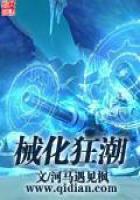There is here a special remark to be made. As we have seen above, recent research has shown that natural selection or struggle for life is no explanation of variations. Hugo de Vries distinguishes between partial and embryonal variations, or between variations and mutations, only the last-named being heritable, and therefore of importance for the origin of new species. But the existence of variations is not only of interest for the problem of the origin of species; it has also a more general interest. An individual does not lose its importance for knowledge, because its qualities are not heritable. On the contrary, in higher beings at least, individual peculiarities will become more and more independent objects of interest. Knowledge takes account of the biographies not only of species, but also of individuals: it seeks to find the law of development of the single individual. (The new science of Ecology occupies an intermediate position between the biography of species and the biography of individuals.
Compare "Congress of Arts and Science", St Louis, Vol. V. 1906 (the Reports of Drude and Robinson) and the work of my colleague E. Warming.) As Leibniz said long ago, individuality consists in the law of the changes of a being. "La loi du changement fait l'individualite de chaque substance."Here is a world which is almost new for science, which till now has mainly occupied itself with general laws and forms. But these are ultimately only means to understand the individual phenomena, in whose nature and history a manifold of laws and forms always cooperate. The importance of this remark will appear in the sequel.
V.
To many people the Darwinian theory of natural selection or struggle for existence seemed to change the whole conception of life, and particularly all the conditions on which the validity of ethical ideas depends. If only that has persistence which can be adapted to a given condition, what will then be the fate of our ideals, of our standards of good and evil? Blind force seems to reign, and the only thing that counts seems to be the most heedless use of power. Darwinism, it was said, has proclaimed brutality.
No other difference seems permanent save that between the sound, powerful and happy on the one side, the sick, feeble and unhappy on the other; and every attempt to alleviate this difference seems to lead to general enervation. Some of those who interpreted Darwinism in this manner felt an aesthetic delight in contemplating the heedlessness and energy of the great struggle for existence and anticipated the realisation of a higher human type as the outcome of it: so Nietzsche and his followers. Others recognising the same consequences in Darwinism regarded these as one of the strongest objections against it; so Duhring and Kropotkin (in his earlier works).
This interpretation of Darwinism was frequent in the interval between the two main works of Darwin--"The Origin of Species" and "The Descent of Man".
But even during this interval it was evident to an attentive reader that Darwin himself did not found his standard of good and evil on the features of the life of nature he had emphasised so strongly. He did not justify the ways along which nature reached its ends; he only pointed them out.
The "real" was not to him, as to Hegel, one with the "rational." Darwin has, indeed, by his whole conception of nature, rendered a great service to ethics in making the difference between the life of nature and the ethical life appear in so strong a light. The ethical problem could now be stated in a sharper form than before. But this was not the first time that the idea of the struggle for life was put in relation to the ethical problem.
In the seventeenth century Thomas Hobbes gave the first impulse to the whole modern discussion of ethical principles in his theory of bellum omnium contra omnes. Men, he taught, are in the state of nature enemies one of another, and they live either in fright or in the glory of power.
But it was not the opinion of Hobbes that this made ethics impossible. On the contrary, he found a standard for virtue and vice in the fact that some qualities and actions have a tendency to bring us out of the state of war and to secure peace, while other qualities have a contrary tendency. In the eighteenth century even Immanuel Kant's ideal ethics had--so far as can be seen--a similar origin. Shortly before the foundation of his definitive ethics, Kant wrote his "Idee zu einer allgemeinen Weltgeschichte" (1784), where--in a way which reminds us of Hobbes, and is prophetic of Darwin--he describes the forward-driving power of struggle in the human world. It is here as with the struggle of the trees for light and air, through which they compete with one another in height. Anxiety about war can only be allayed by an ordinance which gives everyone his full liberty under acknowledgment of the equal liberty of others. And such ordinance and acknowledgment are also attributes of the content of the moral law, as Kant proclaimed it in the year after the publication of his essay (1785) (Cf. my "History of Modern Philosophy" (English translation London, 1900), I. pages 76-79.) Kant really came to his ethics by the way of evolution, though he afterwards disavowed it. Similarly the same line of thought may be traced in Hegel though it has been disguised in the form of speculative dialectics. ("Herrschaft und Knechtschaft", "Phanomenologie des Geistes", IV. A., Leiden, 1907.) And in Schopenhauer's theory of the blind will to live and its abrogation by the ethical feeling, which is founded on universal sympathy, we have a more individualistic form of the same idea.















